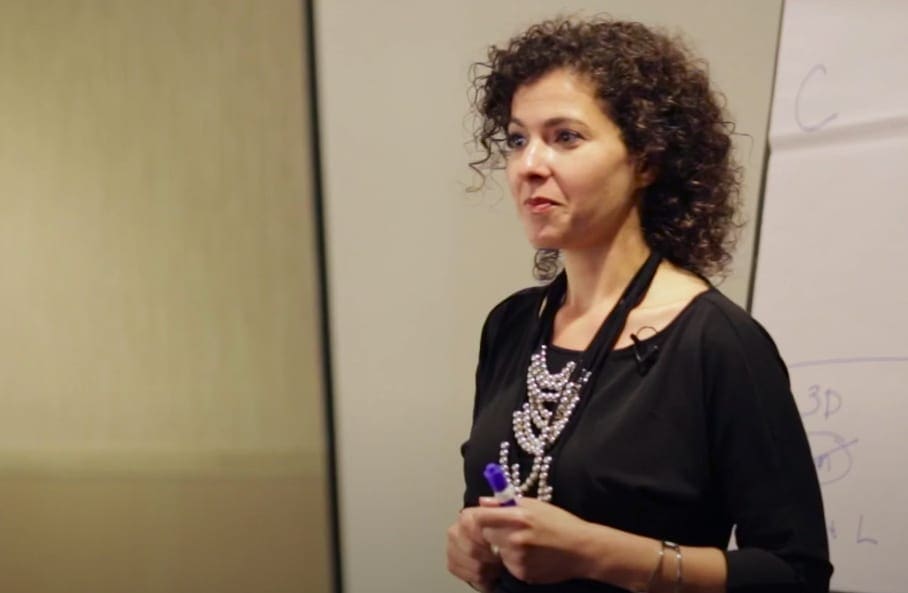I’m not a financial expert. I’m a 20-something college student who is as prepared to leap into the competitive industry of commerce as you might expect. But this week, I was afforded the opportunity to speak with someone who not only has the prowess and expertise to succeed in the American economy, but has done so while assisting other struggling businesses around her. This is Rana Shanawani, and here’s what I learned about her mission to save American micro business.
Shanawani originally spent 12 years in Syria as a micro-entrepreneurship expert. After working as an International Development Consultant with several United Nations programs, including UNICEF, she was selected to be a chapter CEO for Youth Business International, headed by Prince Charles. She holds a Master’s in Health Science from Johns Hopkins University School of Public Health and a Bachelor’s in Biology from Cornell University, and she currently serves as the Executive Director of the Women’s Center for Entrepreneurship. She was also featured on Business Insider this past month, speaking about the Paycheck Protection Program.
So, you may be asking the same question as I was: What is a leader in the nonprofit industry and renowned small business advocate doing talking to me? Shanawani is on a mission to preserve American micro business during the pandemic. She needs the help of the public eye.
Micro business is a different category entirely from small business, though we often tend to unknowingly group them together. Shanawani explained to me how, through its definition by the Small Business Administration, “small business is considered to be 50 employees or less at its minimum.” This means that small business includes companies “with net worths of up to eight or nine figures.”
Shanawani’s organization, the Women’s Center for Entrepreneurship Corporation, deals primarily with micro business entrepreneurs. These are typically “five and less employees,” and that those “are the ones [they] care most about and target, the ones who suffer the most under the pandemic, the ones who definitely weren’t able to take proper advantage of the PPP.”
What exactly is the PPP, though? It’s a buzzword (buzz-abbreviation?) tossed around on headlines and news networks alike, but non-business owners like myself barely have a grasp of it. Shanawani was able to break it down for me:

Rana Shanawani, Executive Director of the WCEC.
“The PPP, or the Paycheck Protection Program, was launched by the Small Business Administration. It starts off as a loan, but if you follow the rules, it would convert into a grant. This was part of the CARES Act. The CARES Act went out with good intentions to help small businesses. But it was very spontaneous and went out last-minute, and was very complicated in the beginning. You can see that Congress tried every couple weeks to make it better with feedback from certain constituents. However, what ended up happening was it caused more confusion. It overwhelmed a lot of small business owners, and especially micro business entrepreneurs.”
Shanawani has recognized the U.S. Government’s failure to protect their grassroots businesses. She explained that the pandemic has been “devastating for small businesses who are relying on PPP funds to pay employees, rent and ultimately see the loan as a lifeline to keep the lights on.” Minority-owned businesses have been disproportionately affected by COVID-19. Shanawani notes that the millions of dollars going to large companies and billionaires “is a double blow for these businesses who need this critical funding to survive.”
It seems concretely immoral that the government is allocating resources to companies with astronomically higher net worths than those of micro businesses across the country. Why would the companies that can sustain themselves in a pandemic be receiving prioritized funding? Is it because the government is protecting the rich? Well, not exactly.
In Shanawani’s experience dealing with this very issue, she’s learned that “the companies that were able to get [the PPP loans] have a professional team in place, and had the capacity on the ground with outsourced, third-party professionals that are well-versed in the application process.” In summation, “those giant companies have armies of people that can take care of those things for them, and that in itself is an unfair advantage.”
The necessary resources for small and micro business to gain allocated government resources are virtually inaccessible online. Most micro business entrepreneurs don’t have the required documents or a way to even access them. The WCEC assists in submitting the documentation, acting as consultants to these businesses.
The WCEC has implemented a number of different programs, including:
- Webinars for women and minority business owners
- Daily webinars that take spontaneous Q&A
- A guide to navigating the CARES Act
- One-on-one counseling sessions that anyone can sign up for
- Business plan templates for newer businesses
- PPP application webinars, updated every time guidelines are changed by FDA
- Listening sessions, where WCEC asks participants exactly what resources they need
- Information seminar on how to go from brick-and-mortar to eCommerce

WCEC event on the topic of American Micro Business.
The WCEC had always assisted women and minority-owned small business in the United States. But now, they’ve answered the call to prioritizing micro businesses drowning in the pandemic:
“Overall, we want to make sure that micro businesses and solo entrepreneurs have all [the documentation] ready if there’s a second wave and so that they know what to do and won’t get stuck in the same situation again. We want to make sure everyone has dialed up the sophistication of their business. American micro business owners are intimidated by account ledgers, accounting, and bookkeeping, so that stuff gets pushed to the back burner. The WCEC wants to help them realize that they shouldn’t do that anymore, especially not now. The time to prioritize that is now.”
To keep tabs on Shanawani’s organization and see what you can do to help American micro business, be sure to check out their website, Facebook and Instagram.
About the Author/s
Jack Oliver is an aspiring writer, and is so thrilled to be part of The Digest's team. He also works as an editor at GenZ Publishing. Previous accolades include a published play by Lazy Bee Scripts ("Coming of Age").
